Earth
Sign up for our newsletter
We summarize the week's scientific breakthroughs every Thursday.
-
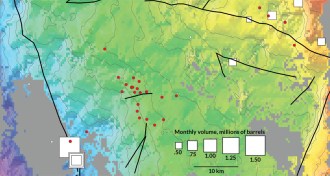 Earth
EarthOklahoma earthquakes triggered by wastewater injection
Dumping wastewater from the oil and gas industry into disposal wells may have set off swarm of earthquakes in Oklahoma.
By Meghan Rosen -
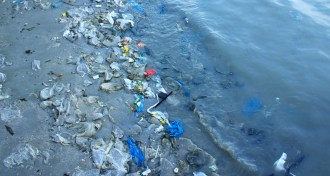 Environment
EnvironmentPlastic goes missing at sea
A survey of the world’s oceans finds far less polymer trash than expected, and researchers don’t know where the rest of the plastic is.
By Sam Lemonick -
 Animals
AnimalsEmperor penguin population could decline by 2100
Emperor penguins’ reign over Antarctic sea ice could be in decline by the beginning of the 22nd century.
-
 Earth
EarthWavy jet stream linked with extreme weather
Extreme weather events have been linked with big waves in the jet stream.
-
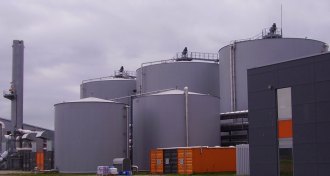 Environment
EnvironmentTriclosan may spoil wastewater treatment
Common antimicrobial could make microbes more drug resistant and less efficient at breaking down sewage sludge in municipal treatment plants.
By Beth Mole -
 Environment
EnvironmentE-cigarettes may inflame lungs as much as cigarettes do
Acute lung impacts of e-cigarettes and tobacco cigarettes are nearly identical, new study finds.
By Janet Raloff -
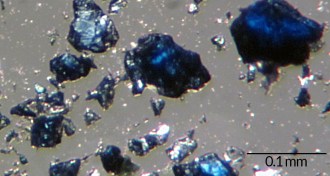 Earth
EarthEarth’s deep interior holds vast reservoir of water
Ocean’s worth of water trapped in Earth’s mantle, lab experiments and seismic data suggest.
-
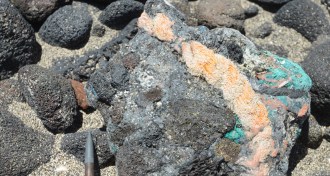 Earth
EarthRock made of plastic turns up on Hawaii beach
A new type of rock made from trash could mark human's impact on Earth in the future rock record.
-
 Agriculture
AgricultureFertilizer produces far more greenhouse gas than expected
Farmers’ overuse of nitrogen-based fertilizers may explain previously puzzling high emissions of nitrous oxide.
By Beth Mole -
 Health & Medicine
Health & MedicineHealth risks of e-cigarettes emerge
Research uncovers a growing list of chemicals that end up in an e-cigarette user’s lungs, and one study finds that an e-cigarette’s vapors can increase the virulence of antibiotic-resistant bacteria.
By Janet Raloff -
 Oceans
OceansDusk heralds a feeding frenzy in the waters off Oahu
Even dolphins benefit when layers of organisms in the water column overlap for a short period.
-
 Environment
EnvironmentCarbon dioxide levels hit landmark in Northern Hemisphere
The Northern Hemisphere experienced the first full month with the greenhouse gas at or above the symbolic 400 parts per million level.
By Beth Mole